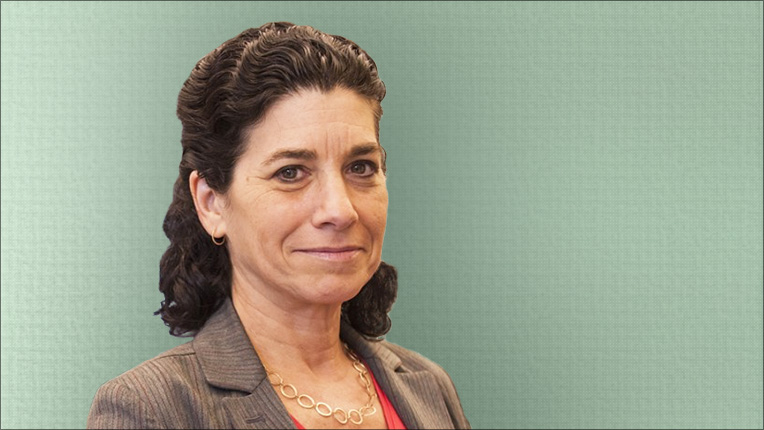People of ACM - Deborah Estrin
November 27, 2018
How did you become interested in using data traces to better monitor and understand challenges such as personal health?
Right after finishing graduate school at MIT, I was fortunate to be part of the early internet research community (whose academic home was ACM SIGCOMM), where I primarily worked on routing. In the late 1990s I became interested in taking the approaches and lessons from internet protocol development and applying them to the emerging collection of connected devices and sensors that were being introduced to measure and monitor the physical world. I focused on environmental monitoring, in particular, and spent almost a decade working with ecologists, environmental engineers, roboticists, statisticians and distributed systems researchers and practitioners to develop effective software architectures, analysis techniques, and end-to-end systems (where our academic homes were ACM SenSys and Mobisys).
In the mid-2000s, Nokia launched an innovative research program called SensorPlanet, which got us started working with mobile phones as sensors—first in the context of participatory sensing systems (a type of crowdsourcing), and ultimately as tools for individuals to measure and manage health and wellness.
What is an important technical challenge in this area that you are working on now?
An important challenge (which is both technical and socio-technical) is building systems that offer the benefits of personalization while managing an individual's exposure from a privacy perspective. Take something as basic as location data. Individuals and groups rely on location-based services as part of their day-to-day lives; what started as in-car navigation is now built into apps and services ranging from resource and workforce management, to health, retail, dating, and gaming.
Yet, in many contexts, the data collected and shared is far more extensive, continuous, and granular than is needed for a particular application to deliver service to a particular individual. As explained by my colleague, Helen Nissenbaum, “the critical concept here is context.” There is no uniformly acceptable rule that governs what, when, with whom, and how much we share. As a result, we face a technical challenge to build systems that have the flexibility to share and audit information according to the requirements of contextual integrity. The implications of this extend from the way recommendation systems are designed at the application level, to the way our smartphones function at the operating systems level.
You received a National Science Foundation grant to develop new ways of measuring, and ultimately managing, pain. What role can computer science play in this effort?
In collaboration with colleagues at the Cornell Ithaca campus and at the Weill Cornell Medical College, this project explored cross-discipline development of new measures of pain. While pain management was already an issue at that time, the opioid crisis was not yet broadly recognized as a nationwide crisis. Our work resulted in several new techniques for individuals to record personal pain assessments and to represent corresponding changes in pain interference to clinicians. Some work explored physical interaction such as squeezing a sensor-laden physical object, and some involved translating standardized clinical surveys into individualized visual assessments. The latter is now available for any group to customize to their medical condition or cohort using ResearchKit and ResearchStack, which are open-source mobile research frameworks.
While new ways of measuring pain do not make pain go away, this sort of low-burden, patient-generated data is essential to optimizing, personalizing, and adapting treatments for individuals over time, with the objective of reducing dependence on medications and surgical interventions, and providing evidence for the effectiveness of alternative and personalized pain management techniques.
Tell us about the Health Tech Program, which you created at Cornell Tech.
We created the Health Tech Master’s program to provide students with graduate-level training in computing and information systems, in the context of healthcare and entrepreneurship. We were motivated by the critical unmet need in the market for technologists who understand health and healthcare, and by the opportunity to bring students from a wider range of science and engineering backgrounds into tech.
What advice would you offer a younger colleague just starting out in the field?
George Bekey was the Department of Computer Science chair at University of Southern California and hired me straight out of graduate school. His advice is what I give others who want to work at the boundary or intersection of disciplines: namely, that you should keep one foot firmly grounded within a discipline and explore with the other. I can see him standing and tapping around with his leg as if it was yesterday...but it was 1986! I would also add to that the recommendation to do things that you deeply believe to be important and significant, not just expedient, while still being pragmatic in their pursuit.

Deborah Estrin is a Professor of Computer Science and Associate Dean at Cornell Tech, where she founded the Health Tech program and directs the Small Data Lab. Her current research focus is at the intersection of small data, personalization, and privacy. Much of her prior work focused on leveraging the pervasiveness of mobile devices and digital interactions for health and life management (see her 2013 TED talk here). As part of her work in this area, she co-founded the nonprofit Open mHealth to foster open modular architecture, methods, standards, and community.
Estrin’s honors include being named a Fellow of ACM (2000) and receiving the ACM Athena Lecturer Award (2006), which celebrates women researchers who have made fundamental contributions to computer science; she is also an elected member of the American Academy of Arts and Sciences and the National Academy of Engineering. In 2018 Estrin was awarded a MacArthur Fellowship, for designing open source platforms that leverage mobile devices and data to address socio-technical challenges such as personal health management.